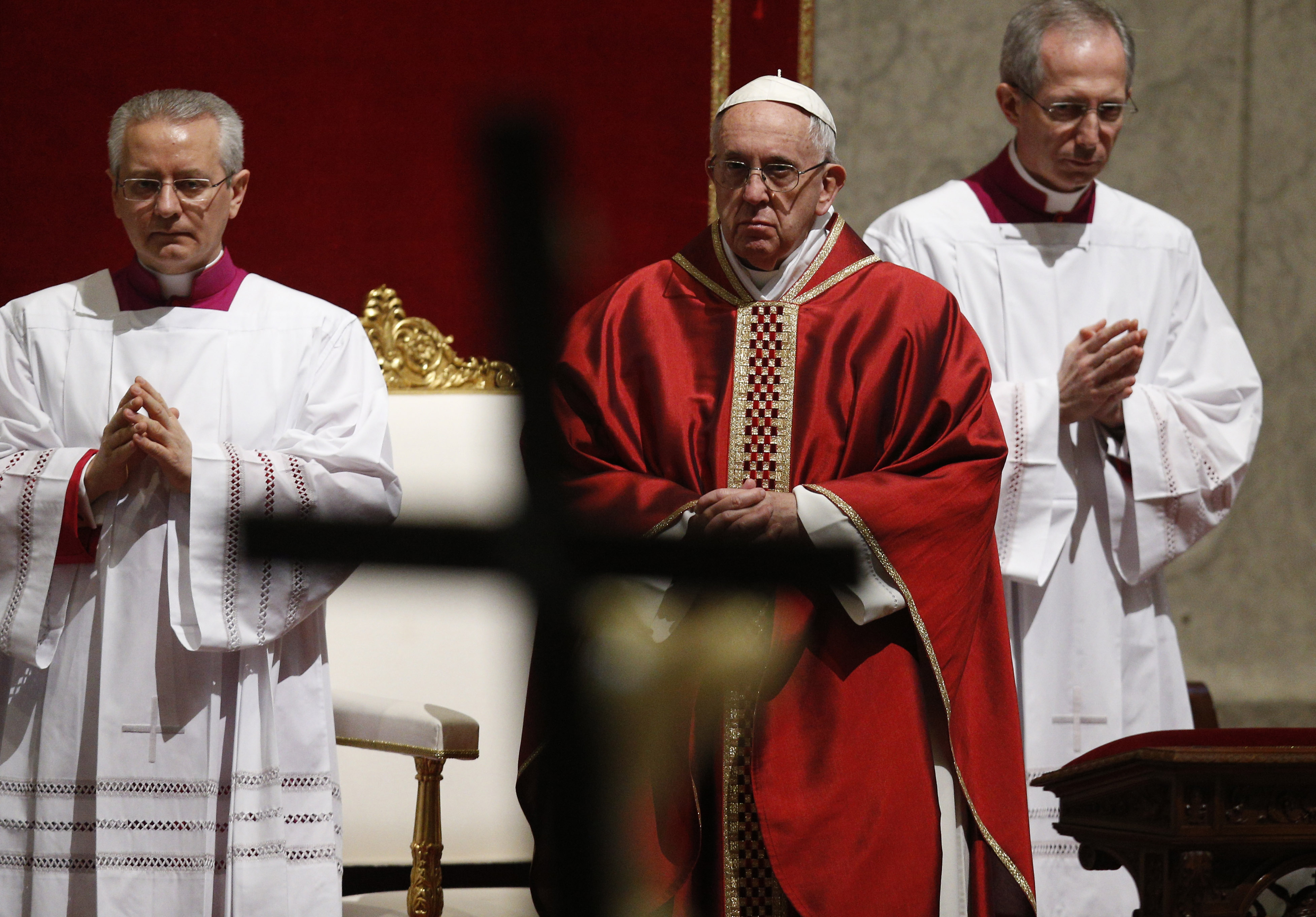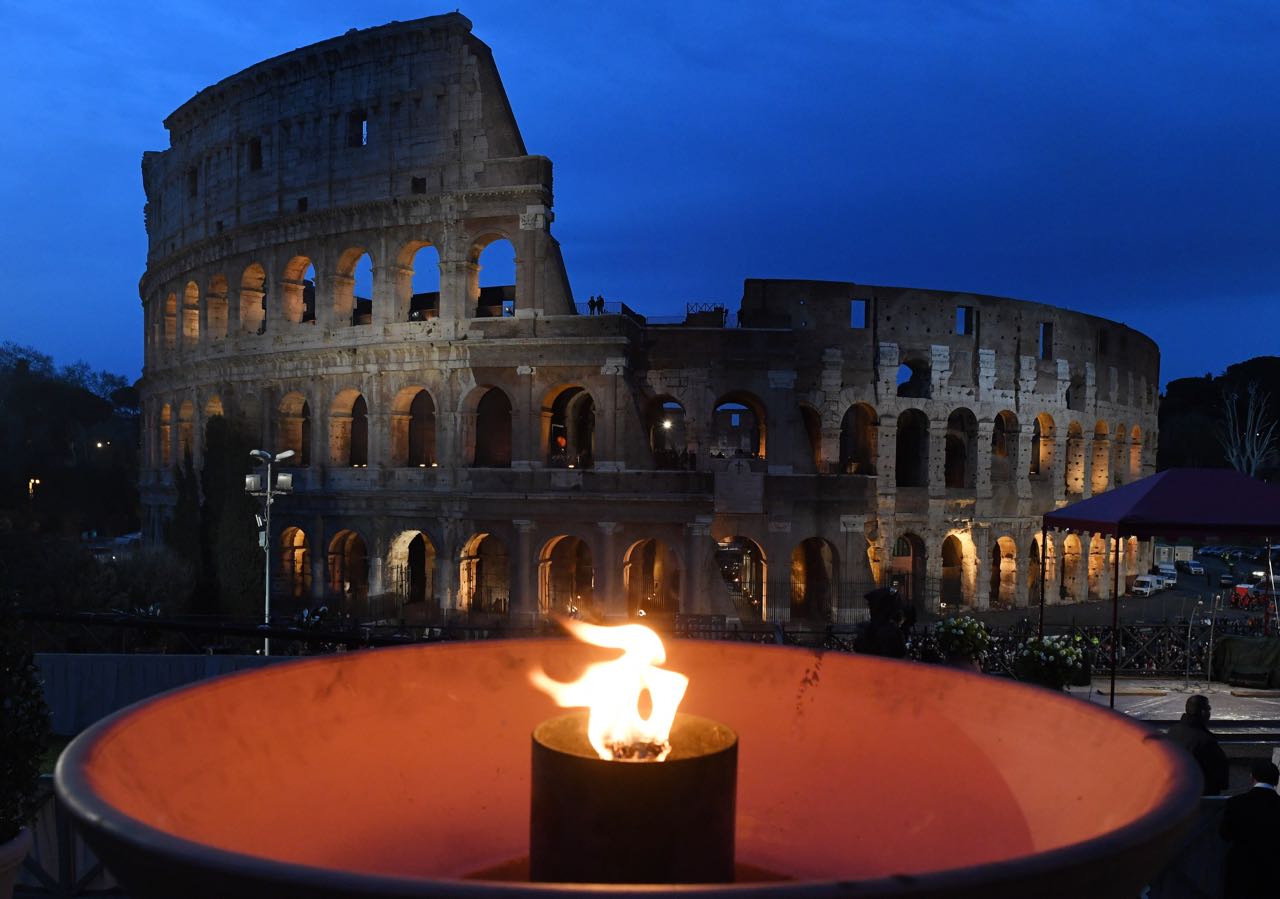Holy Saturday is, according to Christian tradition, the day that Jesus descends into Hell to free the “just” souls that went before him.
Hell has been on the agenda this Holy Week after the Italian newspaper “La Repubblica" quoted Pope Francis saying it does’t exist in an article which the Vatican says is unreliable and the fruit of the author’s own “reconstruction”.
Eugenio Scalfari, the 93-year-old co-founder of “La Repubblica" and a non-believer, reported the remarks following a conversation with Francis although the Vatican says there is no transcript of what was said. Scalfari has had five similar meetings with the Pope but never records or takes notes. This not the first time that the Vatican has disputed the report of a Francis-Scalfari dialogue.
The truth is that the 81-year-old Pope, who repeatedly talks about the devil and is heavily influenced by a novel featuring the Antichrist, is unlikely to utter the words: “Hell doesn’t exist.” He’s also on record as confirming its existence.
But moving beyond the did-he-or-didn’t he say it narrative, the net effect of the drama is to highlight the perception of a Pope more interested in showing mercy than in judging sinners. And this is the big overarching theme of Francis' pontificate.
So deeply has this impression taken hold that to many media outlets it was perfectly plausible that Francis was somehow doing away with Hell.
On the flip side, critics of Francis from inside the Church are extremely anxious – and in some cases furious – by what they see as a Pope playing fast and loose with a core doctrine while using discussions with an atheist journalist to give nods and winks about possible changes.
This brings us to the conundrum facing a Pope and many other church leaders: a message designed to attract people to Christianity, will at the same time infuriate the hard core following.
To put it in crude political terms this is about balancing an appeal to the undecided voter with ensuring the faithful don’t depart the pews. A Scalfari interview is a way through this quandary for Francis. The dramatic headlines set off a media firestorm, but the Vatican issue a denial and there is no change in doctrine.
The confusion irritates the internal critics, but they have no grounds to walk away, or start issuing formal condemnations. For outsiders it seems that this Pope is trying to open things up.
Before the 2013 conclave where the cardinals chose the first Latin American and Jesuit Pope, Cardinal Jorge Bergoglio impressed them with a speech about the problems of a “self-referential” Catholicism.
He said there were two images of the Church: “One which evangelises and comes out of herself” and the other a “worldly Church, living within herself, of herself, for herself.”
The decision by Francis to be interviewed by Scalfari is a risk, but one he believes worth taking to make sure the message of the Gospel does not become imprisoned from inside the Church. The same can be said for the other interviews he has given and the free-wheeling press conferences on board the papal plane.
This is also this Pope’s attempt move away from focussing on doctrinal purity, while the rhetoric of condemnation of previous popes is being replaced with a rhetoric of invitation.
“We must be careful not to fall into the temptation of making idols of certain abstract truths,” Francis told priests in St Peter’s Basilica on the day his Hell comments were reported.
The “truth idol”, he added, “is camouflaged. It dresses itself up in the words of the Gospel, but does not let those words touch the heart.”
For Francis, Catholic teaching cannot be like a beautiful museum piece, encased in glass on the wall for people to admire but with alarms ready to blare off if anyone tries to get a closer look. Instead, doctrine must become pastoral, and life giving. This is not a question of changing the rules, or abandoning them, but requires less talk about what is right and wrong and more focus on applying them to people’s lives.
When it comes to Hell, Francis is clearly not comfortable with it as a burning pit of fire or a place where people on earth can judge others will be going to. One of Francis’ predecessors, Clement VII (1523-34), once half-jokingly said: “My jurisdiction does not extend to Hell.”
He is also part of a long running shift in Catholic theology that does not imaging Hell as a densely populated place, but instead the real possibility of living with the “absence of God”. A much deeper and fuller depiction of the afterlife in explored in Cardinal John Henry Newman’s “Dream of Gerontius” – brought to its ultimate expression in Elgar’s oratorio of the same name – and which moved beyond narrow Heaven and Hell distinctions.
Gerald O’Collins, a Jesuit academic, told The Tablet that both Hans Urs von Balthasar, one of the most influential theologians of the 20th century, and Pope John Paul II developed the teaching on Hell so that “we should hope and pray that no one will so reject God as to finish up there for all eternity.”
These internal theological shifts take time to filter out of the Church and into the wider world. While the Pope’s Scalfari interview might seem like a blunt instruments in getting a message out, when it comes to Hell Francis is changing ideas for lapsed or non-Catholics who might be under the false impression that the Church is “de facto” condemning them to eternal damnation.
Pic: Pope Francis leads the Via Crucis (Way of the Cross) torchlight procession celebrated in front of the Colosseum on Good Friday in Rome, Italy on March 30, 2018. Photo by Eric Vandeville/ABACAPRESS.COM/PA



 Loading ...
Loading ...